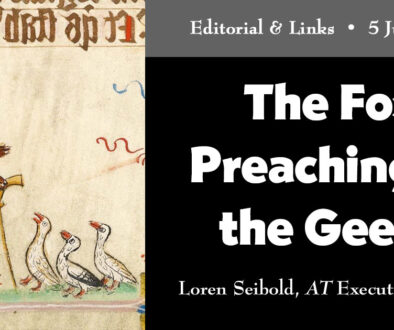Aunty, what is God’s seal of his people: the Holy Spirit, or the Sabbath?
26 April 2021 |
Dear Aunt Sevvy,
The book of Revelation is said to be the Revelation of Jesus, and according to Revelation 5:1-5 only Jesus can explain it correctly. Yet why does it seem that sometimes it is the Revelation of the Adventist Church or the Revelation of Ellen White rather than the Revelation of Jesus?
For example, New Testament writers identified the seal of God’s ownership of His people as the Holy Spirit (Ephesians 1:13-14; Ephesians 4:30 and 2 Corinthians 1:21). Our church and Ellen White identify it as the Sabbath. I believe in the Sabbath, but I don’t see the evidence that it’s the seal of God in Revelation.
I’d prefer to stick to the obvious meaning of what is written rather than what seem to me to be forced interpretations. What do you think, Aunty?
Signed, Looking for a Revelation
Dear Looking
It helps to understand the life cycle of churches. At the beginning, a group of sincere seekers find in Scripture some ideas that are relevant to the world they live in, and they courageously stand up for them even in the face of scorn. But in a generation or two their ideas harden like concrete. They hold on to them long after they were relevant (and often scorn people with newer ideas!).
So with this one. AT’s friend and frequent author Reinder Bruinsma explains that the Sabbath as a seal developed early in our history as an understanding of God’s counterpart to the Mark of the Beast, which “will at the end of time function as a visible token of the fatal choice of the majority of the people to aligning themselves with the powers that are opposed to God’s people.” Writes Dr. Bruinsma,
This view is thought to be supported by the several times in the Old Testament where the Sabbath is referred to as a sign of belonging to the people of God (Exodus 31:2; Ezekiel 20:12, 20), and by the identification of God’s remnant as a commandment-keeping community.
He adds that even though the idea of the Sabbath as a seal has “considerable force,”
There is, I think, justification to take another look at this view, and to adjust the expectations of our 19th-century spiritual forbears to the twenty-first century reality. The Holy Spirit as God’s seal must never be lost sight of. The Holy Spirit is “a deposit, guaranteeing what is to come” (2 Corinthians 5:5) and marking us as people who belong to Christ (Ephesians 1:13). Keeping the Sabbath on the seventh day of the week can never serve as a seal of God’s ownership unless we have been marked by the Spirit.
So try to look at Adventist interpretations with some forbearance, understanding, as Ellen White said, that “The fact that certain doctrines have been held as truth for many years by our people, is not a proof that our ideas are infallible” (Counsels to Writers and Editors, page 35).
Aunt Sevvy
 You can write to Aunt Sevvy at DearAuntSevvy@gmail.com. Please keep questions or comments short. What you send us at this address won’t necessarily be, but could be, published—always without real names. Aunt Sevvy writes her own column, and her opinions are not necessarily those of Adventist Today’s editors.
You can write to Aunt Sevvy at DearAuntSevvy@gmail.com. Please keep questions or comments short. What you send us at this address won’t necessarily be, but could be, published—always without real names. Aunt Sevvy writes her own column, and her opinions are not necessarily those of Adventist Today’s editors.




